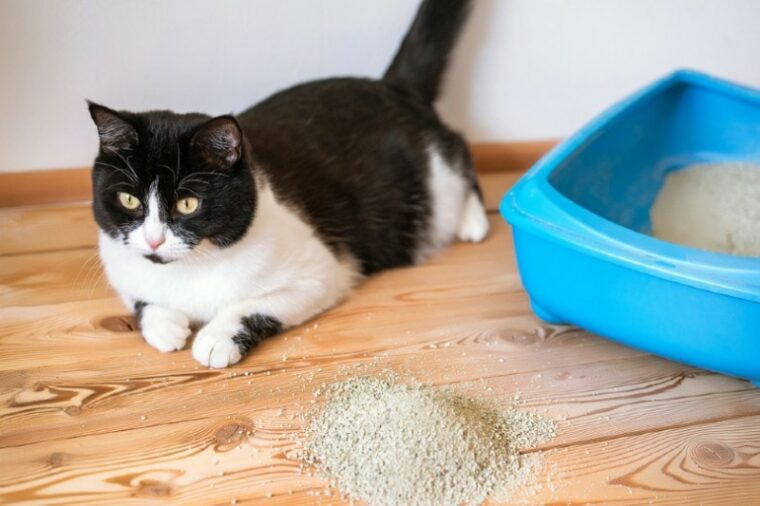
Felines are incredibly fastidious when it comes to cleanliness, which is why it can be disconcerting if they suddenly start pooping outside of their litter box. This unwanted behavior will have any cat owner scratching their heads for answers!
Contrary to popular belief, a cat is not going to defecate out of their litter box merely out of spite. That said, if your feline companion’s behavioral or medical needs aren’t being met, improper elimination may be their way of indicating that something is wrong.
In this article, we explore common reasons that your cat may suddenly be using your floor as a litter box and give you tips on how to remedy this upsetting behavior—and restore your home’s fresh smell!
The 5 Reasons Why Your Cat is Pooping on the Floor
1. Health Issues
There may be a medical reason that your cat has suddenly begun relieving themselves on the floor. While some reasons are linked to urinary health issues—such as a urinary tract infection, diabetes, or kidney disease—others are more specifically associated with problems surrounding defecation.
One of the first things to consider when your feline starts pooping outside the tray is the poop itself. It may not be a topic we are particularly fond of discussing, but the color, size and consistency of the stool can tell us a lot about what could be causing the problem, so take note – and photos – in case you need to see your vet.
These are just a few of the possible health issues that your cat may suffer from, but there may be others or even a combination of specific medical conditions. Either way, if your cat suddenly stops using their litter box, your first step is to take them to the vet to rule out any possible health issues. If they get a clean bill of health, you can then consider the following possible explanations.
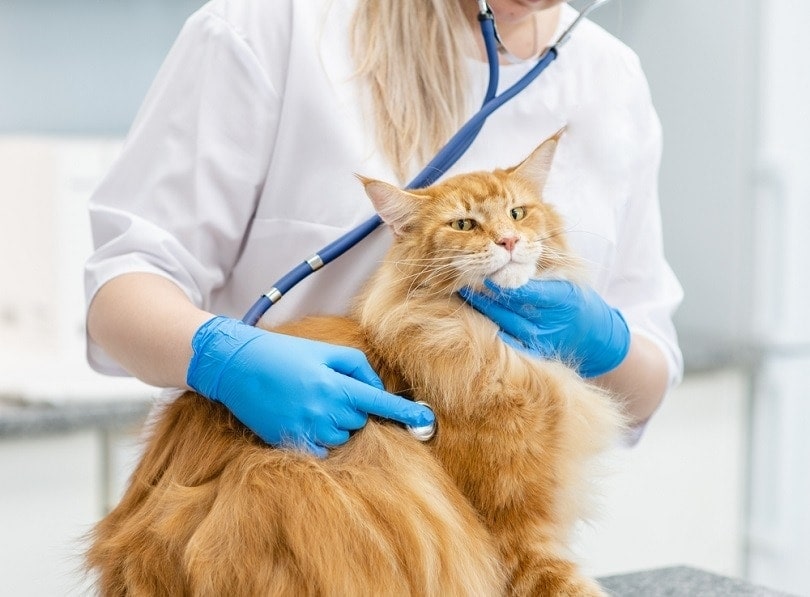
2. Unclean Litter Box
Your feline companion’s personal “toilet” should be kept as pristine as possible to avoid unpleasant surprises. It’s quite common—and understandable—for cats to choose another place to do their business if their litter box doesn’t meet their cleanliness and odor standards.
3. Type of Litter
The type of litter that you use can affect your kitty’s decision to relieve themselves in the right place. So, that new brand of litter that you just bought might have a heavenly lavender scent, but it may be way too strong for your furry baby’s delicate nose. The litter’s texture can also be unpleasant for your cat’s paws or generate too much dust.
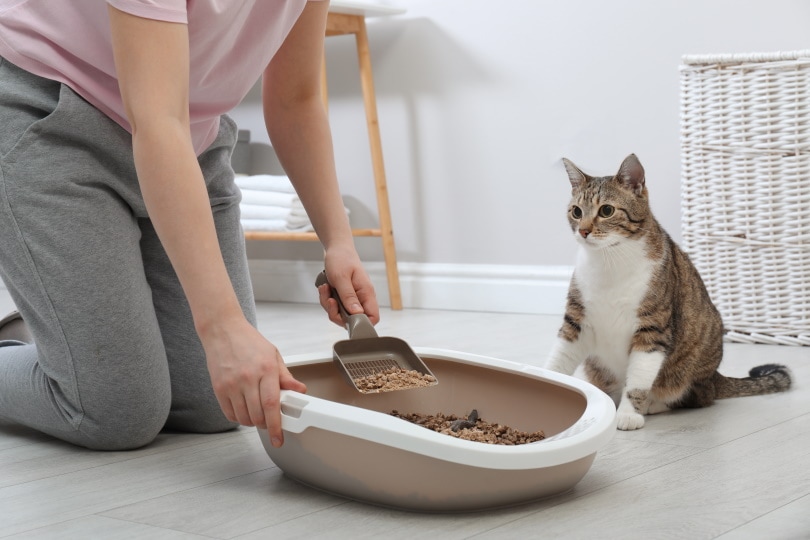
4. Litter Box Location
The location of the litter box is not a trivial detail. Indeed, if it is located in a busy area of your home, it is likely that your cat will be reluctant to use it. After all, they are also entitled to their privacy! Or could you imagine sitting down for a peaceful poop when suddenly the washing machine starts its noisy cycle? That might be a bit off-putting!
5. Stress or Anxiety
Cats are creatures of habit, so they may temporarily start eliminating outside of their litter box when they feel stressed or upset about something. Changes in their environment, such as moving to a new home, introducing new pets, or having disruptions in their routine, can trigger this behavior. Try to identify potential sources of stress that could be causing your cat to behave in unusual ways. Even the arrival of a new cat in the neighborhood can trigger this sort of response, although inappropriate urination is more common in this sort of scenario.
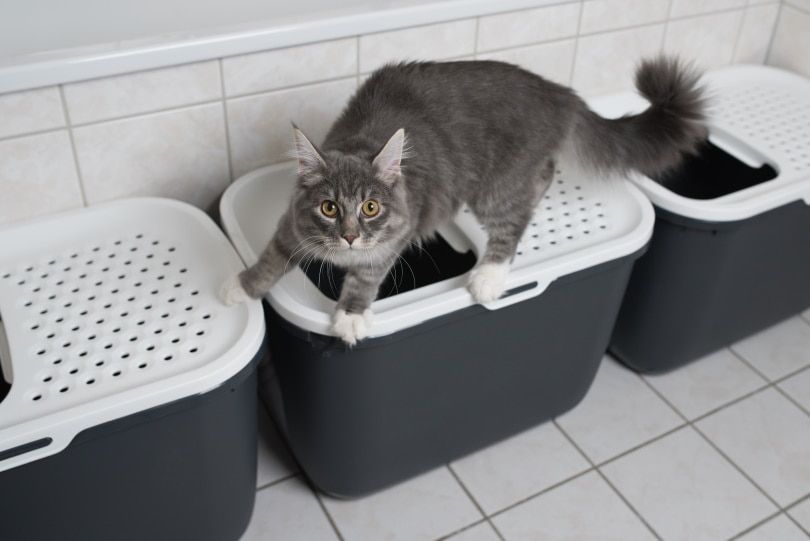
How to Stop Your Cat From Pooping Outside the Litter Box
Most of the time, litter box problems are temporary. Still, there are a few things that you can do to improve the situation.
Check With Your Vet
The only way to rule out a medical issue is by having a health check. Depending on the severity of the problem, or the appearance of the poop, you might want to do this before trying anything else, or you can try the tips below first:
If you’ve followed the commandments and the problem persists or worsens, you should consult your veterinarian. These professionals can provide you with specific advice based on your pet’s individual situation and help you resolve the issue in the best way possible.
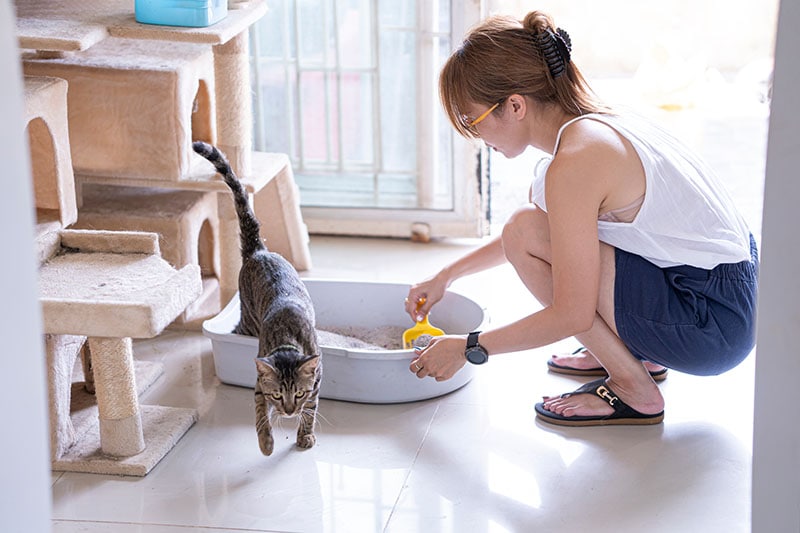
Conclusion
A house-trained kitty that chooses to poop outside of their litter box can be a source of frustration and worry for any cat owner. However, by delving into the possible causes and implementing appropriate solutions, you can create an attractive elimination station and restore normal litter habits.
Remember to consider any potential health issues, assess the litter box setup, and check to see if a change in routine could be causing this unusual behavior. With patience, consistency, and the right approach, you should be able to guide your cat back to using their box correctly. Ultimately, this will lead to a happier, cleaner living environment for you and your feline companion.
Featured Image Credit: Tanya Plotnikova, Shutterstock








